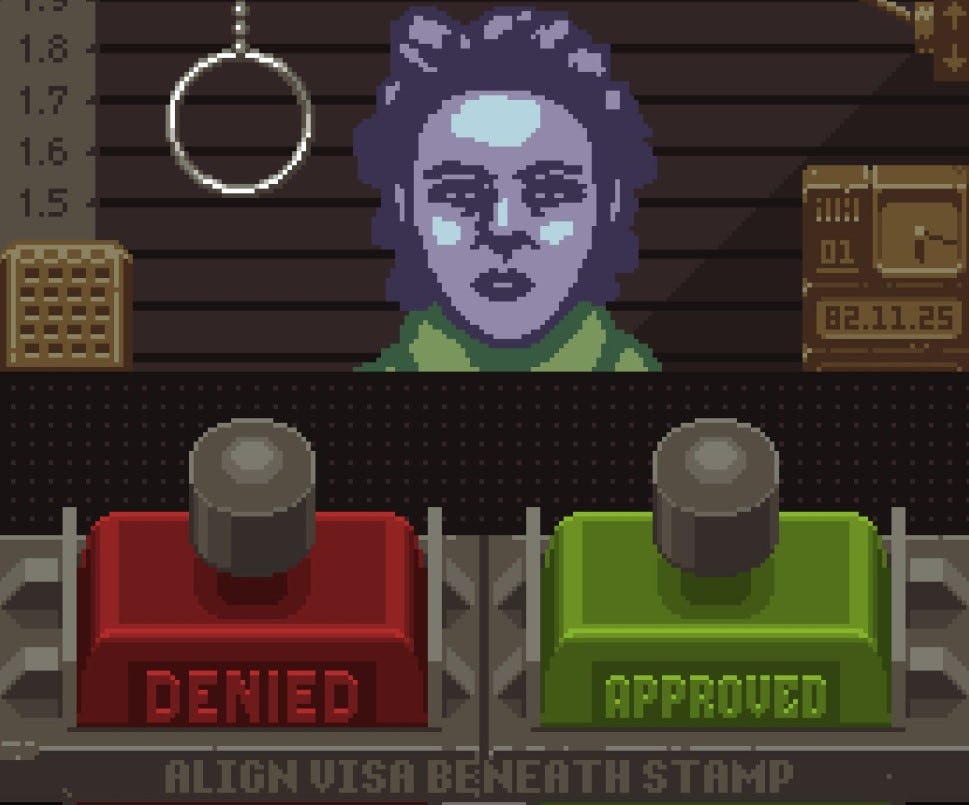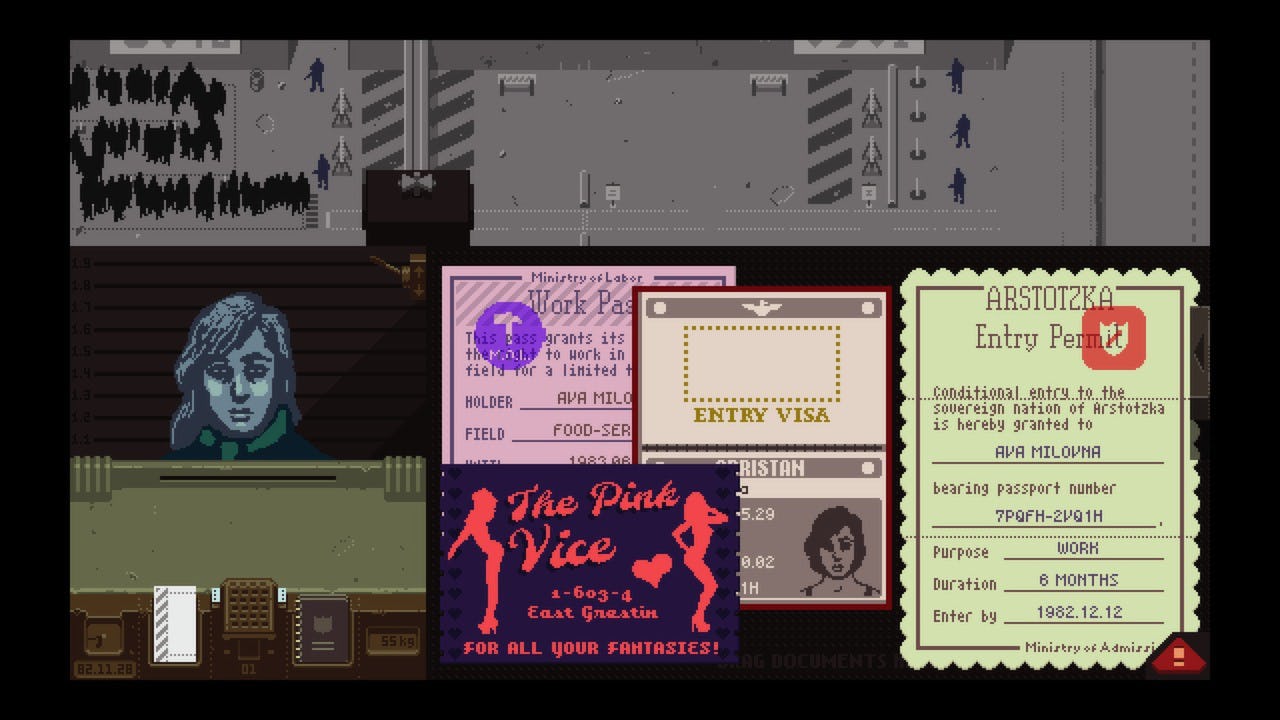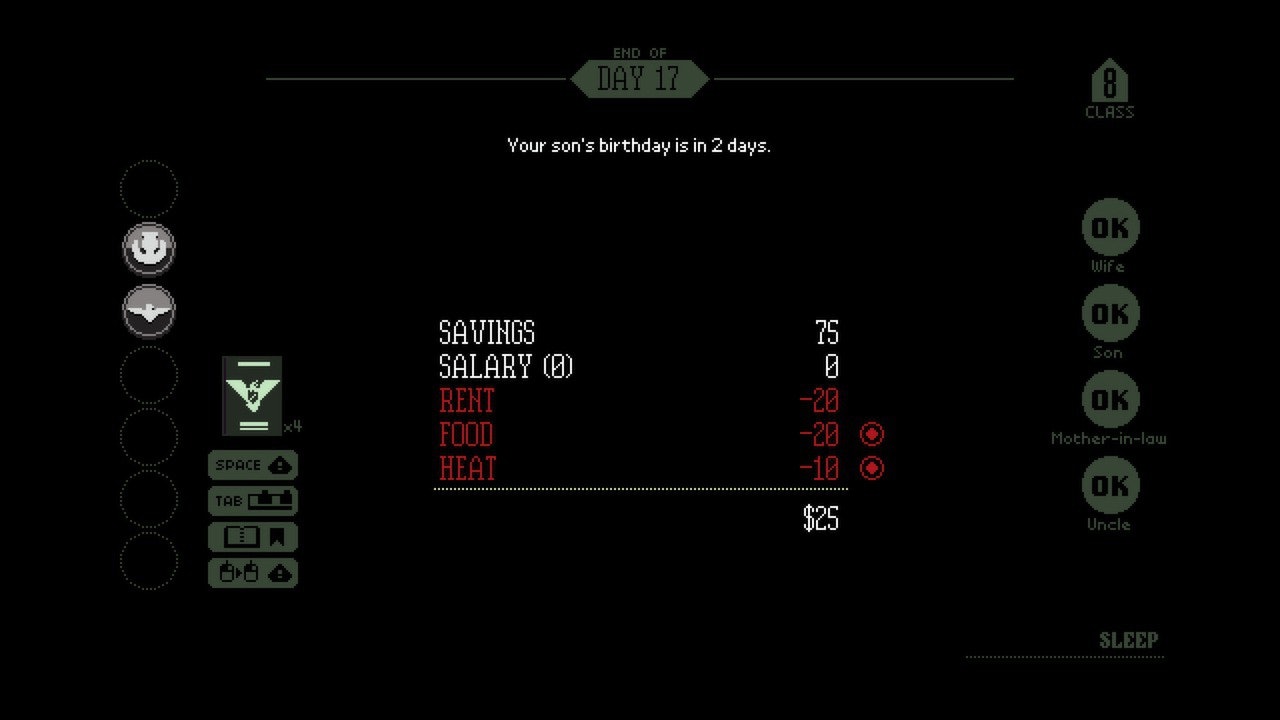
The worst part of traveling is having to go through TSA or customs. It feels like an extra step in the process that mostly exists due to government bureaucracy. So, you wouldn’t expect working as an immigration inspector at a border checkpoint to be an exciting premise for a game. Yet 2013’s Papers’ Please is easily one of the most enthralling puzzle games of the past decade.
By utilizing the mundanity of a government operation, it challenges players through puzzles but also in how they approach complicated moral issues. Ten years later, it remains unforgettable.

The goal of Papers, Please is to successfully do your job as a border checkpoint inspector. People come up to your window with passports and you need to check if their documents are in order then either deny or approve entry into the country. This is the central puzzle mechanic, as some passports may be forged or have out-of-date information, meaning they must be denied. If you mess up you will get in trouble with your superiors.
Once the player is used to this loop, the game shifts slightly. The mechanics don’t change but the player's outlook on the world does. You see the country you are controlling immigration for is a fascist state, and your job is partially to look out for any enemies of the state or those deemed “undesirable” to the government. Beyond just doing your job correctly you need to weigh the moral implications of what you do, knowing that you can collect enough information based on false documents to arrest people who may likely be killed by the state puts more pressure on you.
You may encounter a woman claiming to be the spouse of a resident of your country but discover her documentation is not in order. At this point, it is up to you to either reject or allow her entry, but there is the possibility she is a terrorist. She might even try to bribe you if you threaten to deny her. If you do approve her entry regardless you will be cited for a violation by your superiors, which you can only get away with two times on most days.

The mundanity of checking documents is further complicated by the need to provide for yourself and your family. You receive a wage at the end of every day and then watch that paltry sum slowly deteriorate due to costs like rent, food, and heat. If you receive too many violations you will lose money, and there is a possibility you and your family will die because you couldn’t pay the heating bill.
Over the days that comprise Papers, Please’s story the player is forced to balance their job, their family, and a potential revolution. The decisions you make, all of which come down to approve or deny, have enough permutations that the game has 20 possible endings. All of these depend on how you perform and the stance you take on the political events happening on both sides of the border.
Papers, Please is a deceptively simple game that revolves around its central puzzle mechanic, but contains a fascinating emergent story of ethical decision-making. It's a one-of-a-kind game, and well-worth playing even a decade after its release.







